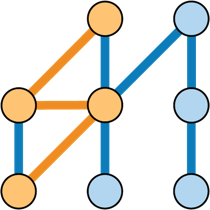Please see Working with Enumerable Types for a lot more information about what's going on behind the scenes.
Once in a while you might want to get an enumerable of all the configured objects for a PluginType. That's done with the GetAllInstances() method shown below:
[Fact]
public void get_all_instances()
{
var container = new Container(x =>
{
x.For<IWidget>().Add<AWidget>().Named("A");
x.For<IWidget>().Add<BWidget>().Named("B");
x.For<IWidget>().Add<CWidget>().Named("C");
});
container.GetAllInstances<IWidget>()
.Select(x => x.GetType())
.ShouldHaveTheSameElementsAs(typeof(AWidget), typeof(BWidget), typeof(CWidget));
// or
container.GetAllInstances(typeof(IWidget))
.OfType<IWidget>() // returns an IEnumerable, so I'm casting here
.Select(x => x.GetType())
.ShouldHaveTheSameElementsAs(typeof(AWidget), typeof(BWidget), typeof(CWidget));
}
GetAllInstances() respects the order in which the actual instances are configured in the Container. Be warned that some other IoC tools make different assumptions if you are coming from a different tool.
